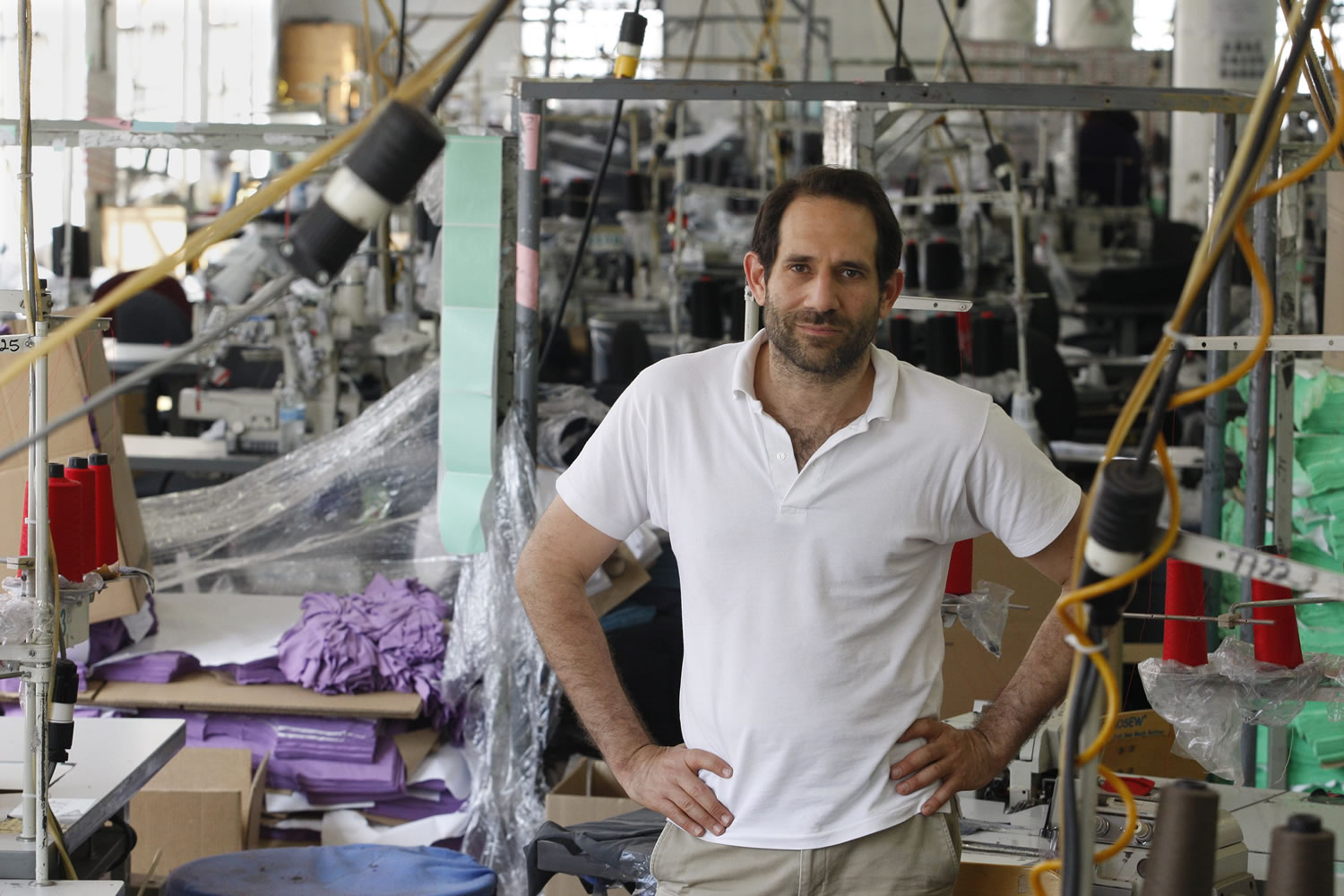Dov Charney’s sudden firing as American Apparel’s chief executive will likely lead to what one analyst called “big, drastic changes” in the company.
Other analysts said the Los Angeles retailer could be headed for layoffs, store closures, bankruptcy, a sale and even a shift away from the “made in America” manufacturing strategy Charney championed.
Much depends on whoever is chosen as Charney’s successor. Analysts said American Apparel Inc. probably will choose a less provocative executive, possibly an older person or someone with a family.
“Dov Charney didn’t have many friends on Wall Street,” said Ronnie Moas, founder of Standpoint Research, who tried to reach American Apparel four times last month and was met with a wall of silence.
The next permanent chief executive needs to be “highly regarded and more conservative in the way he manages the business and also his behavior,” Moas said.
On Wednesday, after the company’s annual meeting, the board decided to strip Charney of his chairman and chief executive titles, suspending him immediately and terminating him after 30 days.
The move resulted from “an ongoing investigation into alleged misconduct,” according to a statement from American Apparel. A source familiar with the matter said the alleged problems seemed to stem from Charney’s poor judgment and his conduct with women.
Charney, 45, declined to comment when reached by phone.
Charney has spent years fighting off lawsuits and accusations of sexual misconduct and inappropriate behavior with employees.
Four female former employees filed a sexual harassment lawsuit in 2011. The company told the Los Angeles Times that the women were friends who were colluding to “shake down” Charney and the company for money and that there was “voluminous evidence” disproving their allegations.
In 2012, Charney was accused in a wrongful termination suit of choking and rubbing dirt in the face of a former store manager in Malibu. Charney also allegedly used ethnic and homophobic slurs against an employee and asked whether he was sleeping with a certain woman. The company denied the allegations.
American Apparel has also faced other controversies in recent years. The company was required to remove hundreds of employees found to lack required documentation. The advertisements photographed by Charney became infamous for their suggestive nature.
Given the manner in which he was ousted, Charney is unlikely to return to American Apparel as a consultant or in an emeritus position, analysts said. But his legacy may remain at least partly intact.
The Montreal native ran American Apparel out of his dorm room at Tufts University before moving the business to Los Angeles in 1997 and expanding into the retail market in 2003.
He was outspoken about his production philosophy, which involved “sweatshop-free” California factories. American Apparel on Thursday reaffirmed its commitment to continue to manufacture its products in the U.S.
The company is “a radically different form” of company – one of the few American businesses to be completely vertically integrated across manufacturing, wholesaling and retailing, said IBISWorld analyst Will McKitterick.
“It would be really hard to shed the made in America model because it’s such a part of the company’s brand,” he said. “Doing so could radically change the company and potentially turn off some consumers.”
But Moas – who earlier this year blacklisted business giants Apple, Amazon.com and Philip Morris on “moral and ethical grounds” – said American Apparel should move some of its production overseas in order to compete effectively with fast-fashion rivals such as H&M and Zara.
The move, he said, would save most of the company’s American jobs and allow the brand to “lead by example” by paying its foreign factory workers far more than the local rates.
“It’s a no-brainer and they don’t have much choice anyway,” he said. “Otherwise, they let the whole company go under or let someone take it private and then potentially take all production overseas and not raise wages at all.”
Private equity firms, especially those with other retail holdings, can be expected to start circling soon, analysts said. The company also may face lawsuits from creditors and shareholders who worry that Charney’s departure may hurt the company so closely associated with him.
Terminating Charney may tip the business into bankruptcy by triggering defaults on two outstanding loans, the company said in a regulatory filing Thursday. American Apparel has spent recent years fighting to boost sales, lift itself out of debt and stay listed on the New York Stock Exchange.
American Apparel reported a net loss of $106.3 million in 2013 compared with a $37.3 million loss the year before.
“I will always have admiration for the iconic brand that Dov created, but sometimes he was his own worst enemy,” said Todd Slater, managing director at Threadstone Advisors. “Everybody recognizes that American Apparel wouldn’t be as relevant or iconic a brand without him, having really been the spark and energy behind it.”



